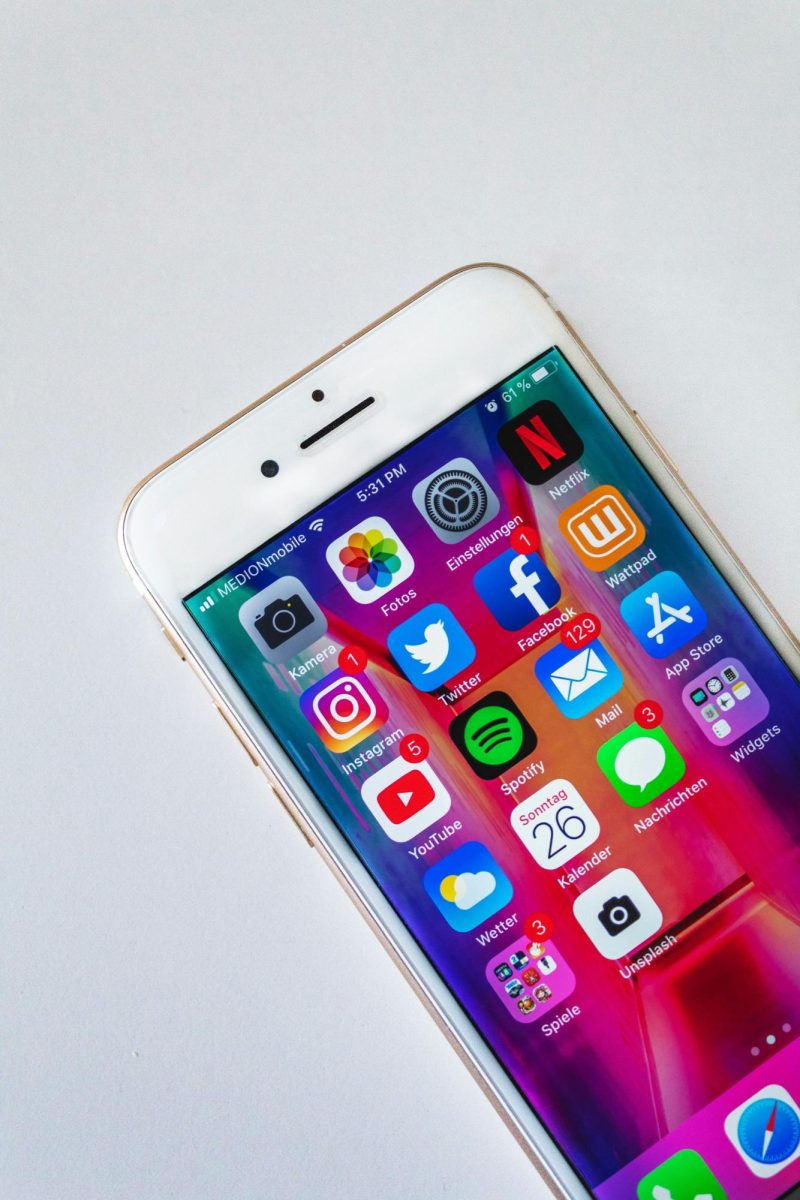Most of us have devices that offer immediate and short entertainment within reach at all times. Apps like Instagram and TikTok have contributed to student’s shortened attention spans with their short, scrollable nature.
TikTok videos can range anywhere from five seconds to 15 minutes. If a user doesn’t like the first few seconds of a video on their feed, they can easily scroll to something that is more engaging for them without even finishing the first video. The same is true with Instagram, we can easily scroll and switch our brains onto a new topic that provides more dopamine than the one before. The median attention span is 47 seconds according to Gloria Mark, Ph.D., from the American Psychology Association, which is a concerning statistic.
Passive consumption has essentially caused our brains to be unable to focus on longer videos or material. This issue translates to longer forms of media such as movies, which eventually leads us to have a fast-paced mindset that requires constant attention. These types of technology and short-form media platforms grant us instant gratification, which only leaves us wanting to check them more. As a victim of these apps, I can honestly say watching a TV episode or 90-minute movie is more effort than just scrolling through shorter media on my phone.
These types of easier and more digestible media have forced us to multi-task for our brains to constantly be stimulated. Oftentimes, we utilize many different types of technology at one time, such as scrolling through your phone while simultaneously listening to a podcast or watching a lecture. Our brains can only selectively and successfully pay attention to so much at one time.
Due to the nature of our attention span in this current age, we have adapted aspects of our lives to be shorter, faster and more accessible. For example, recorded lectures can be set to two speed, allowing students to watch the lecture quicker without truly retaining the information. Students seek out shorter summaries of books or articles because taking in mass amounts of written language at once has become a struggle. Our shortened attention spans are forcing us to take new shortcuts to learn which hurts our grades, work ethic and futures.
This has caused detrimental effects in the classroom, where it seems students are unable to focus their attention on a lecture. For instance, students often have split screens with multiple windows open. Lack of concentration can occur with or without the presence of distracting devices due to the ways in which our brains have been conditioned to change topics and images so quickly. A professor may ban laptops thus trying to force students to stay focused on the lecture. The University of Chicago Press reported that the mere presence of a technological device may induce “brain drain,” due to the accessibility and desire to look at its content. The reality is that we are used to having a separate screen or type of entertainment to look at every so often. Our minds drift off and often struggle to give a 50–75-minute lecture our full attention. Active listening is difficult when our attention spans are short and can easily shift to a more enticing distraction.
The question is if we should adapt the way we learn to accommodate technology or adapt technology into new ways to learn. It’s possible to suggest that lectures in their current form may not be sustainable for the years to come. Technological capabilities can allow us more convenience in certain areas, but our attention span may hinder our ability to retain mass amounts of important information. We must keep technology’s presence in mind as it is only growing more prevalent in our society.
Julia Bragg can be reached at [email protected]



















Robert Hunt • Feb 19, 2024 at 5:31 pm
This is an amazing cognizant report about technology and the attention span of all of us when using technological devices. This exemplary report also makes us realize that multi-tasking will not result in the full appreciation of the subject in front of us. Most of us just scan the subject and the headlines, and then move on to another article, without analyzing the total content of the article. Thank you for making us realize that the entire content of a report is most important.